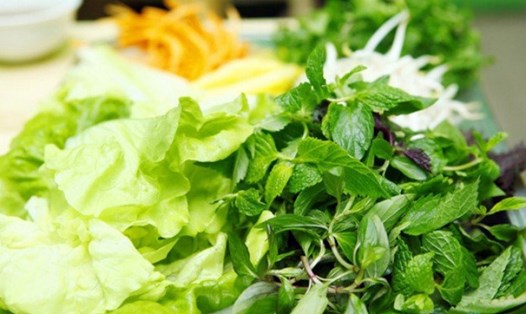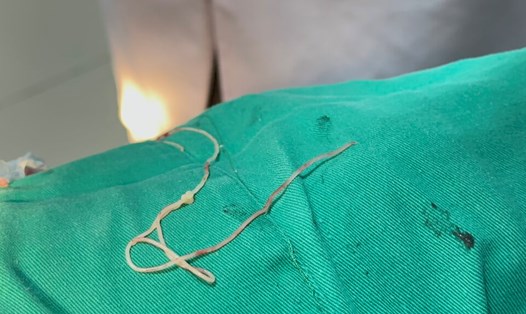Some aquatic vegetables such as spinach, celery, watercress, etc. often grow underwater. When people eat these aquatic vegetables, they are susceptible to intestinal flukes. In Vietnam, intestinal flukes are mainly found in pigs, and areas with many lakes, ponds, and aquatic plants used as food for people and livestock are susceptible to infection.
After about 3 months, the adult intestinal flukes parasitize in the intestines and lay eggs. The eggs will be excreted in the feces. If they fall into water, they will develop into ciliated larvae and enter snails to form larval cysts. About 5 weeks later, they will become tailed larvae that attach to aquatic plants and are capable of transmitting disease.
Vegetables containing many tapeworm larvae:
Celery
There are two types of celery: dry celery grown in fields and water celery grown in ponds. We mainly use water celery in our daily meals. This vegetable has the effect of losing weight, lowering blood pressure, and lowering blood sugar.
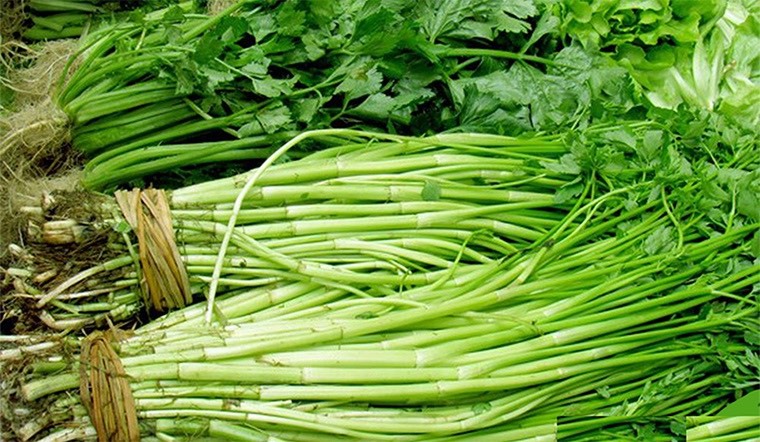
When using fresh celery, you should wash it thoroughly many times with water, then soak it in diluted salt water or dip it in boiling water.
Water spinach
Water spinach is often tastier than dry spinach. Water spinach contains vitamins A, B, C, calcium, phosphorus, nutrients and especially a rich iron content, suitable for people with iron deficiency who want to supplement this substance.
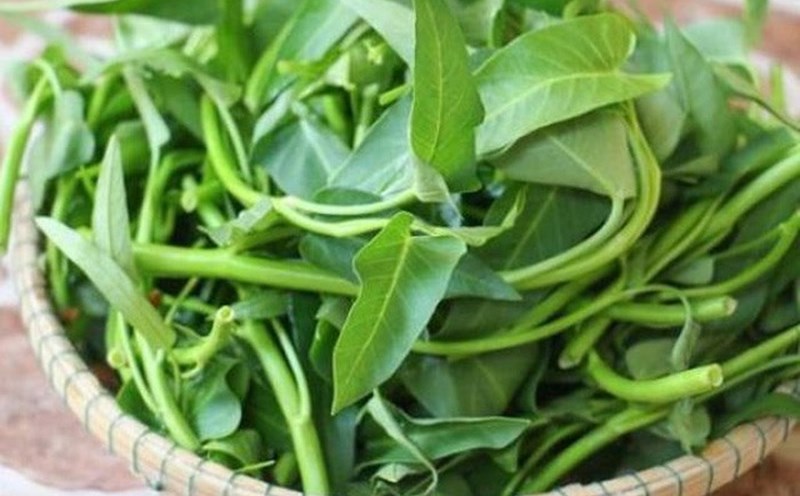
However, because water spinach grows underwater, if grown in a polluted environment it will contain many worms that affect health. When processing, it is necessary to wash the vegetables thoroughly and soak them in salt water for about 30 minutes.
Watercress
Watercress contains nutrients that can prevent cancer and cardiovascular disease. If bought at the market, many housewives hesitate because the vegetable grows in dirty water, often covered with duckweed and contains many parasites.
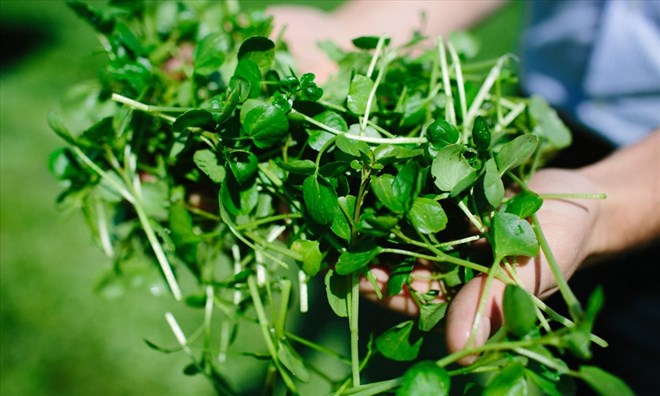
According to research by the US Center for Disease Control and Prevention (CDC), watercress brings great nutritional value to health, and is rated by scientists with a score of 100 for nutritional value.
When eating watercress, you need to wash it thoroughly. If you eat it raw, you should only eat watercress grown on land. People with hyperthyroidism should not eat watercress because it contains high levels of iodine.
According to the Ministry of Health, when infected with intestinal flukes, in addition to the damage to the intestines where the flukes parasitize, the toxins secreted from the flukes will cause general disorders that can cause edema throughout the body, pericardial effusion, and changes in the tissues of the spleen. Patients often have anemia, decreased red blood cell count, decreased hemoglobin, and increased eosinophils. Similar to infection with large liver flukes, after 2 weeks of infection, the body will develop antibodies against intestinal flukes in the patient's serum.
Some simple methods to prevent parasitic worms are to eat cooked food and drink boiled water. For aquatic vegetables, wash them thoroughly, soak them in salt water for about 30 minutes, and limit eating raw vegetables.







